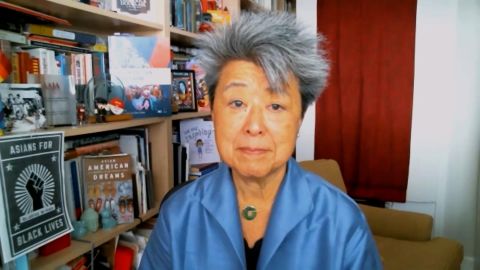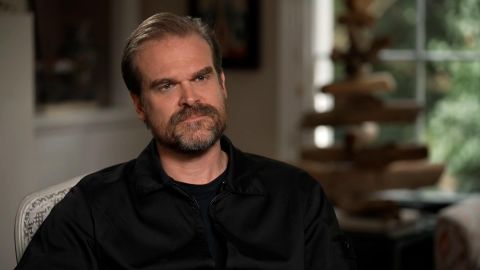Read Transcript EXPAND
DAVID HARBOUR, ACTOR: I mean, the world that I understood and the world that I came up in and what I wanted to be when I was 14 years old was, I wanted to be an actor, a la Gene Hackman, Roy Scheider, like guys that made movies, played different characters, did different things, were part of telling stories. And now I feel like there’s an entire world of branding and this sort of mesh of celebrity and actor, which is a whole different world than I grew up in. So I have no expertise in it. And I think that I have often felt like, as narcissistic as I am, I have often felt that my path is the path. And I guess, as I go further with these kids, I start to realize that it’s not, and that I have to, like, let go of these ideas that I thought make a good career or a good life. And so I have done my best to try to guide as well as I can and then to say, like, hands off, in terms of, this is a new world that is your world. And you have to define it for yourselves.
CHRISTIANE AMANPOUR, HOST: And isn’t part of that new world the fact that kids not just in this program, but in many others — and there are a lot of child actors out there right now, young adults — they are potentially having a pretty tricky, maybe even slightly dangerous experience with early fame?
HARBOUR: I, mean, I would say that’s true, I would say it’s a very tricky thing to navigate for anyone. I mean, I was lucky it didn’t happen to me until I was 40. And so I had a true experience of life and being able to go to the grocery store and make myself a peanut butter and jelly sandwich, I mean, things like that. So, developmentally, to have that amount of attention and that amount of need, like, people really do need something from you, and that — I think it’s somewhat unfair to do to a child, not that it’s anyone’s fault. I mean, it’s like, these are great performances. But I even said early on to the press when we were kind of in the zeitgeist of awards and stuff, I was like, I wish you guys could just let them be brilliant and, like, leave them alone and not pay any attention to them, and not even give them a compliments, so that they can grow and learn and fail and risk and do all these things that I was allowed to do, because I think fame is in certain ways a prison. Because you do become a brand and you become something where people want something from you. And if you can’t deliver, if you risk and you fail, then it’s detrimental to your brand. And I would hate to — I hate to feel that way at 45, but I would really hate to feel that way at, like, 13.
About This Episode EXPAND
Gen. Charles Q. Brown, Jr. is Chief of Staff, U.S. Air Force and the first Black officer to lead a branch of the military. He speaks with Christiane from the Pentagon. “Stranger Things” actor David Harbour speaks about fame, mental health, and what’s next for him. Activist Helen Zia discusses the recent rise in anti-Asian hate crime and why the murder of Vincent Chin in 1982 still matters today.
LEARN MORE

